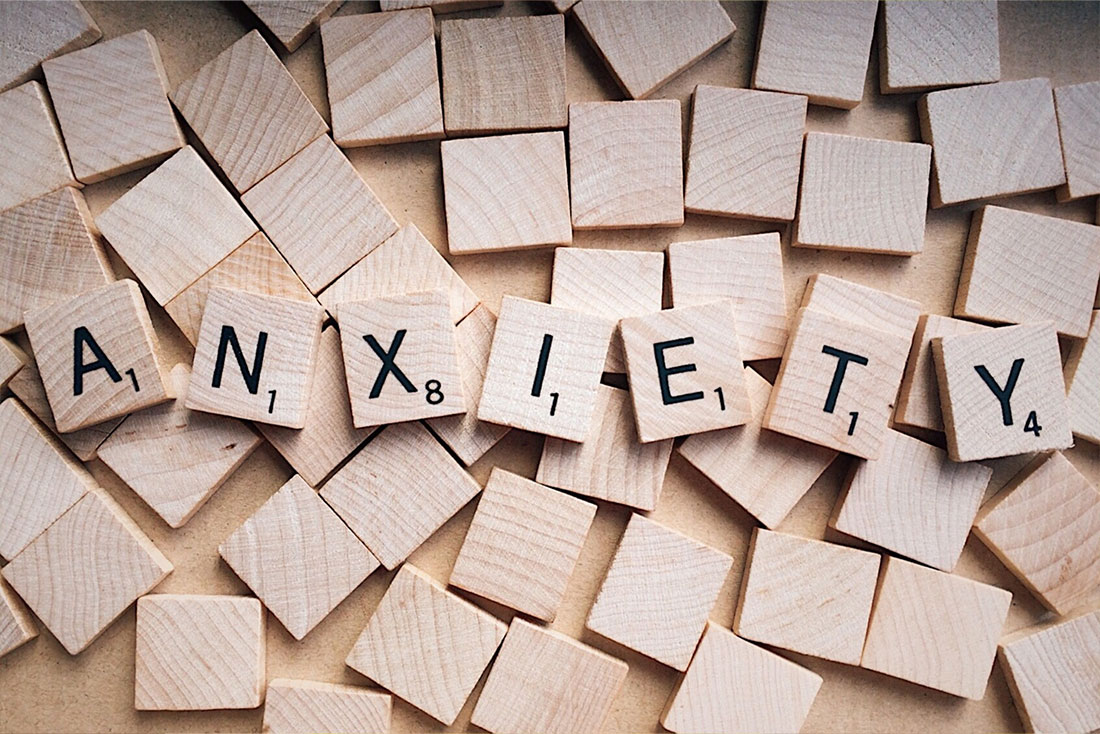
- August 12, 2022
- Center for Developmental Psychiatry
Treatment for Anxiety Disorder: 5 Tips for Learning How To Cope
About 31.1% of US adults experience anxiety at some point in their lives.
But there are treatments for anxiety. Anxiety isn’t curable, but those experiencing it can at least lower their symptoms.
People with anxiety can regain control over their anxiety disorders. Treatment for anxiety disorder can involve diet modifications or lifestyle changes. They don’t all need medical supervision, either.
But to optimize their mental health, patients must first learn about these treatments. Afterward, they can adjust their routines and regain control over their mental health.
What is General Anxiety Disorder?
Anxiety is generally defined as an intense, persistent feeling of dread and worry. There are several major anxiety disorders, such as:
- Generalized anxiety disorder (GAD)
- Obsessive-compulsive disorder (OCD)
- Panic disorder
- Post-traumatic stress disorder (PTSD)
- Social phobia (AKA Social anxiety disorder)
GAD is characterized by chronic and persistent anxiety and tension, even when there is no discernible source for this anxiety. This article will mainly focus on treatment for a general anxiety disorder.
Symptoms of this disorder do overlap with those of other anxiety disorders. Many people also experience multiple disorders concurrently.
5 Tips for Coping with Anxiety
Not all treatment for anxiety comes from a prescription, though it can be a necessary treatment for many patients. However, there are also plenty of other at-home treatments patients can use daily.
1. Medication
As mentioned before, medication is beneficial for many patients, even if it isn’t the only form of treatment available. But users should never forget that it’s a short-term solution, not a long-term one.
They will reduce anxiety symptoms, helping users experience fewer panic attacks. Anxiety medication can also lessen chronic symptoms of anxiety and worry.
It can also improve users’ sleep. Doing so can reduce stress levels otherwise exacerbated by sleep deprivation.
2. Cognitive Behavior Therapy (CBT)
CBT is one of the best long-term solutions for people with anxiety. Instead of simply lessening anxiety symptoms, it also helps patients modify their thinking patterns.
For patients with anxiety, this means identifying triggers and learning how to manage them. Therapists could also help patients detect their cognitive distortions and hold them accountable.
Short-term symptom relief is crucial. But long-term methods such as CBT can help patients reduce dependence on short-term treatment and improve their quality of life in the long run.
3. Exercise
A daily exercise routine isn’t only ideal for improving physical health. It can also help improve mental health symptoms relating to anxiety and depression. Both benefits are essential for many patients with anxiety, who may experience depression alongside anxiety.
Exercise can alleviate anxiety symptoms by occupying patients with an activity that distracts them from their anxiety. It also lowers muscle tension, which can subsequently reduce anxiety.
An increased heart rate also increases the production of neurochemicals such as serotonin, a “happy hormone” that regulates anxiety and improves feelings of satisfaction. Gamma-aminobutyric acid (GABA) production also induces a calming effect, lowering stress. Exercise also activates the endocannabinoid system, which also regulates stress.
As opposed to muscle training, aerobic exercise offers the most direct anxiety relief. But combining the two can produce more robust long-term anti-anxiety benefits.
Most people with anxiety benefit from exercising early in the day. That way, they can experience a huge dose of anxiety relief before their anxiety can affect the rest of their day.
4. Breathing Exercises
Hyperventilation involves rapid breathing accompanied by an elevated heart rate. Rapid breathing increases oxygen levels and reduces carbon dioxide levels in the blood. Otherwise, carbon dioxide would regulate the body’s reaction to anxiety.
It’s a physical symptom of anxiety that can be alleviated by lowering the heart rate. To do so, patients can use breathing exercises to slow their breathing.
There are several breathing exercises that patients can use. One of the most popular exercises involves the 4-7-8 breathing method. It involves breathing in for 4 seconds before holding that breath for 7 seconds. Afterward, patients would exhale for 8 seconds.
For many patients, breathing exercises are best before bed to improve sleep. But most breathing exercises are low maintenance enough to do anywhere, even during work shifts.
Breathing exercises can prevent oncoming anxiety. It can also mitigate ongoing anxiety and panic attacks. So add breathing exercises to your daily anti-anxiety arsenal.
5. Dietary Adjustments
A generally healthy diet is good for anyone, regardless of what conditions they may experience. But for those with anxiety, certain foods can worsen or improve their specific symptoms.
It’s best to remove foods you’re sensitive to from your diet, even if those symptoms are mild. Even mild symptoms can be mentally distressing, increasing irritability and anxiety.
Although caffeine is an excellent start to most people’s day, it’s best to cut its consumption. For some people, removing it completely is even better.
Some people find that swapping tea for coffee helps. Tea possesses anti-stress properties, reducing stress while it energizes.
Dehydration can also worsen people’s moods. So, it’s best to adequately hydrate throughout the day, even if you don’t often “feel” thirsty.
Protein and complex carbohydrates are also wonderful additions to your diet. Protein can help you feel full longer and regulate your blood sugar. This can reduce the stress that hunger would otherwise produce.
Complex carbohydrates can increase serotonin. As mentioned before, this compound can both calm and improve one’s mood.
Treatment for Anxiety Disorder
Plenty of patients with anxiety lead fulfilling and healthy lives. Most of them use treatment for anxiety disorder, removing the condition’s control from their lives.
At The Center for Developmental Psychiatry, we help our patients thrive despite their mental health concerns. That’s why we offer a diverse range of anti-anxiety mental health services. Schedule an appointment with us today to let us help you!